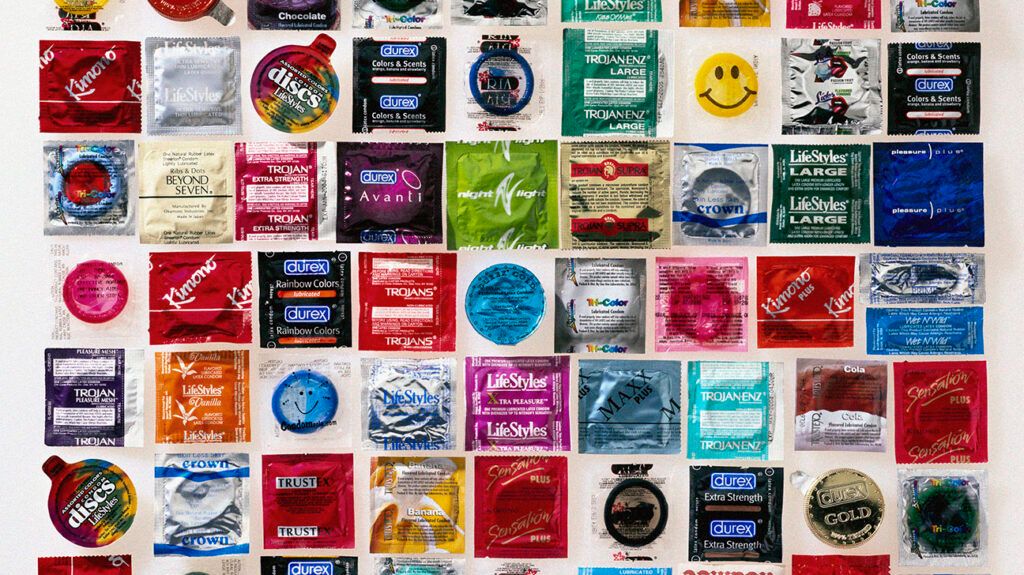Syphilis is a sexually transmitted infection. Without treatment, the stages of syphilis include symptoms that worsen over time. They can lead to severe or possibly fatal complications.
Syphilis is a sexually transmitted infection (STI) that causes people to have sores on several parts of their body. People get or pass on syphilis through direct contact with these sores.
The infection progresses through four stages, with different signs and symptoms. People with syphilis can have several complications if they do not get treatment. They may also be able to have syphilis without any symptoms for some time.
This article discusses the stages of syphilis and treatments.

The first stage of syphilis is the primary stage. People start this stage
They also most commonly do so about 3 weeks after sexual activity without a condom or other barrier method with someone who has syphilis. This includes vaginal, anal, or oral sex. People can get syphilis if they come into contact with an ulcer on a person’s:
- penis
- vagina
- anus
- inside of the mouth
People can also contract syphilis by using a needle that a person with syphilis has previously used.
A person who is pregnant can pass syphilis to their unborn child. It may cause serious birth defects or stillbirth. However, treating syphilis can prevent it from being passed onto the unborn child.
During this stage, syphilis can also be highly contagious.
The symptoms of the primary stage of syphilis include one or more firm and painless open sores, known as chancres. Other symptoms include swollen lymph nodes — small lumps of tissue throughout a person’s body.
The open sores typically appear at the location where syphilis entered the body. People may not notice them, as they are often painless. They usually last for
Without treatment, syphilis
- rough, red, or brown skin rashes that usually do not itch on the:
- palms of their hands
- bottoms of their feet
- sores in their:
- mouth
- genitals
- anus
The first symptom is usually a rash on one or more areas of the body. It may develop as sores clear or several weeks after they heal.
Other symptoms can include:
These symptoms will typically go away with or without treatment.
Without treatment, primary or secondary syphilis
This stage of syphilis often has
Without treatment, people may have latent syphilis for several years or the rest of their lives. It can then develop into the next stage of syphilis, known as the tertiary, or late, stage.
In some cases, latent syphilis relapses into secondary syphilis. This can happen more than once.
Syphilis is still contagious during the latent stage.
Most people with untreated syphilis do not develop tertiary syphilis. If they do, they may develop it
- heart and blood vessels — cardiovascular syphilis
- brain, spine, and nervous system — neurosyphilis
- other organs
This damage can result in severe or fatal complications, such as:
- damage to the aorta
- stroke
- seizures
- organ destruction and failure
- aphasia
- hemiplegia
- tabes dorsalis, which is slow damage to nerve cells and fibers that carry information to the brain
Healthcare professionals can use tests to diagnose tertiary syphilis.
Healthcare professionals typically use antibiotics to treat syphilis. A person’s treatment, dosage, and how long they need it depends on the stage of their syphilis. They also generally require follow-up appointments for testing to check they no longer have the condition.
Treatments for syphilis can take from
Healthcare professionals
Correct antibiotic treatments can cure the condition. However, they cannot cure the damage that syphilis causes. People with complications from syphilis may require separate treatments.
Without treatment, syphilis
- brain and nervous system
- eyes
- ears
These conditions
Some frequently asked questions about syphilis include:
How long does it take for syphilis to get bad?
People can develop several significant secondary symptoms of syphilis within
Can you tell how long you have had syphilis?
People with different stages of syphilis can have
Sexual health resources
Visit our dedicated hub for more research-backed information and in-depth resources on sexual health.
Syphilis is a contagious bacterial STI. People can contract it through sexual activity without a condom or other barrier method, or through using needles that other people with syphilis have used. A person with syphilis can also pass it to their unborn child.
The infection passes through four stages – primary, secondary, latent, and tertiary. People have different symptoms and signs at each stage. Some stages may not have any symptoms or signs and can last for years.
Without treatment, syphilis can cause several symptoms. It may also eventually cause severe or fatal complications. It can also be transmitted to other people, even if a person has no symptoms.
However, healthcare professionals can typically diagnose and treat syphilis using tests and medication.
